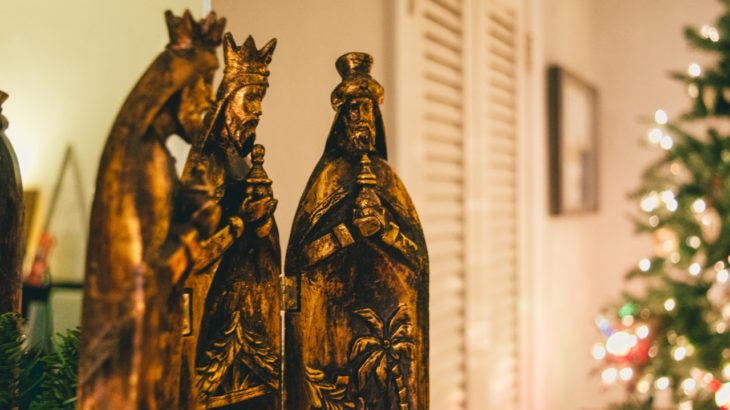In these months of celebration, we have a very important date and it is celebrated in different ways according to the country where we are and they are the famous “REYES MAGOS´´. In fact, depending on the country, it can change the name too.
About this celebration: this beautiful tradition goes back many years ago and is the favorite of the children.
So if you want to know a little more about this significant date, in different countries of the world you cannot miss this post.
SPAIN: once Christmas is over, in Spain it becomes the second most important date. To the point that they are already
world famous horseback riding in Alcoy, Madrid, Barcelona or Santillana del Mar.
This is a joyful celebration that is lived differently from Christmas. In Spain since January 5,
there are celebrations and the afternoon of 6, is when the “REYES MAGOS´´ arrive from the East and descend from their riding, to travel the streets of all Spanish cities. And at night is when all the children will receive their gifts.
In the case of horseback riding, the most popular is that of Alcoy, being the oldest with about 130 years, then followed that of Santillana del Mar with a joint representation of the Auto Sacramental and Cabalgata. And then there are, the
celebrations in the cities of Madrid and Barcelona, without doubt the most incredible and luxurious.
On January 6, a cake known as Roscón de Reyes is also eaten. It is a round cake, which carries in the center a pea or bean seed and / or a king figure.
LITHUANIA: in this country the focus of this day is more religious and is not a holiday. A courtship of three wise men by the main cities and a series of games is organized for the children to do during that late.
PUERTO RICO: in this Caribbean island the tradition is based on the fact that the children of the house collect grass from the yard and leave it next to the letter. In this way the camels that accompany the Kings can be fed and in turn these out of gratitude, leave a gift to all those children.
CZECH REPUBLIC: it is not considered a holiday, it is an Epiphany. And the tradition is very curious, because for to celebrate this day what is done is that several people bathe in the frozen Vltava river.
PERU: on January 6, a holiday called “Bajada de los Reyes” is celebrated and consists of reuniting with the family to disassemble the Bethlehem placed in December. Leaving aside the theme of gifts and horseback riding.
IRELAND: This day is known as Little Christmas, Nollaig Bheag or Women’s Little Christmas. And it is celebrated as the day that ends the 13-day Christmas period and the tradition is to remove the Christmas tree and all
decorations placed at home. Since the belief is that if done before, next year you will have bad luck.
CUBA: on this famous island as in Spain, the party takes place on the streets on January 6 and recalls that after the Spanish colonization, this was the day off for slaves to rest. People leave at streets to dance with drums and to celebrate, the day is known as “Easter of the Blacks”.
GREAT BRITAIN: here is not a holiday and the tradition is to go to church services. It also organizes a party where you eat a cake called Twelfth Night Cake, in which you can get a pea seed and one of beans. The person who finds it will be the king or queen of the night. As in Ireland, that is the day to remove Christmas decorations in houses, public places and schools. Because they have a belief that if you do it before, that will bring bad luck.
FRANCE AND BELGIUM: in these countries on January 6 in each family you must choose the king, buy a cake round called Galette de Rois. Each cake carries a figure of the king, a jewel or the key of a car according to the level that you want to give to the celebration. The cake is cut into equal pieces and according to how many members are in the family. Who finds the figure becomes king or queen and wears a paper crown all day.
As you can see, there are many ways to celebrate this beautiful tradition. And you, how do you celebrate the day of the Kings Magicians? Share your traditions and curiosities with us!





